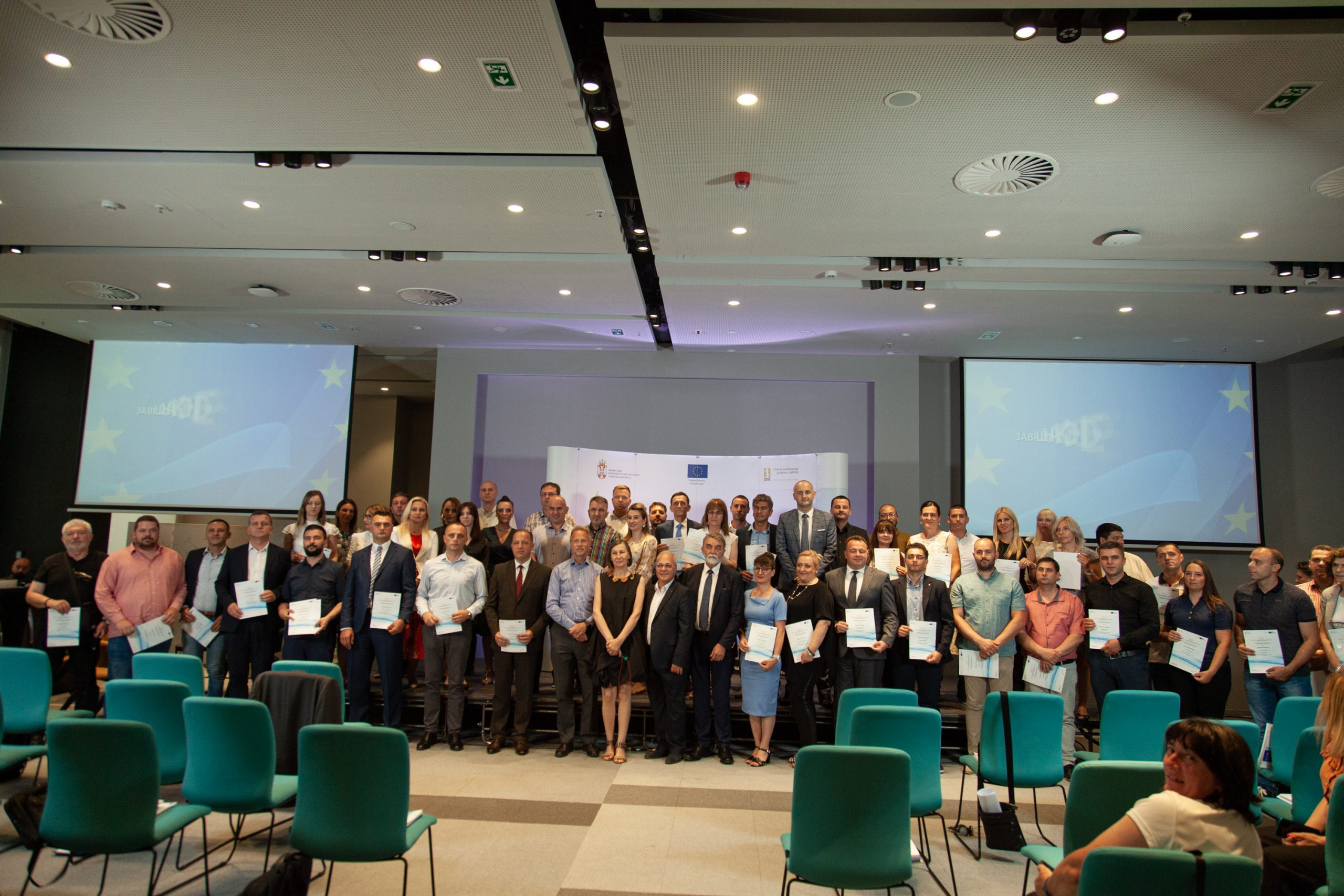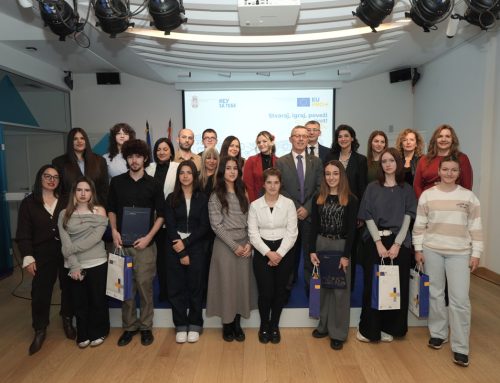Efficient and modern local self-government enables the development and better life of all citizens of Serbia. The European Union’s Exchange 5 programme was implemented as the fifth phase of one of the longest-running EU development support interventions for local self-governments. To the joy of those present, it was announced that support will continue through the next phase – the Exchange 6 programme.
The total value of the program was EUR 4.75 million, and it was implemented through two components: the first focused on local self-government asset management, while the second focused on programme and capital budgeting at the local level and linking it to development planning frameworks.
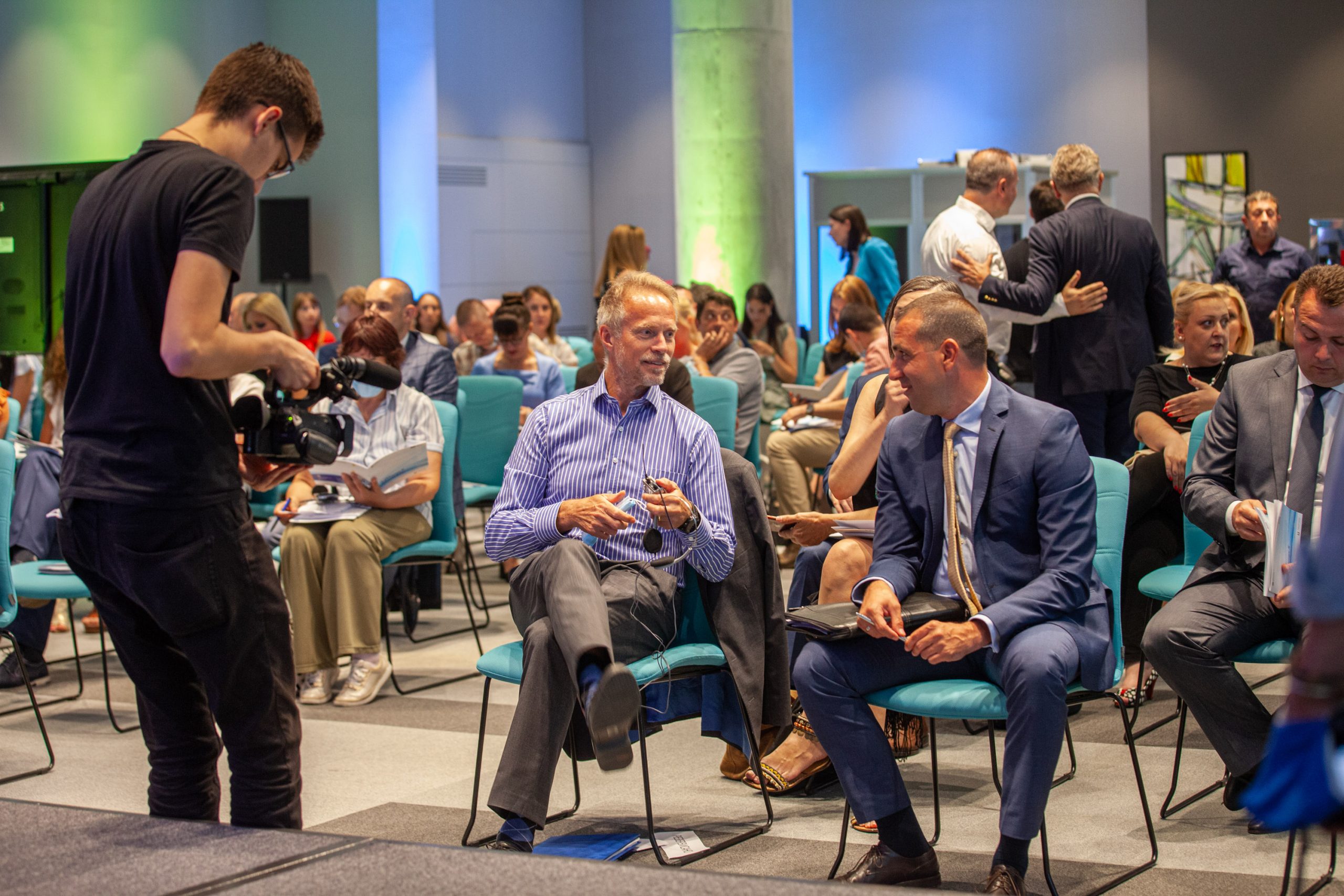
Yngve Engstrom, Head of Cooperation at the Delegation of the European Union to the Republic of Serbia, said that EU accession is happening through the contribution of all levels of government and parts of society.
“All public affairs that are at the core of the services provided to people and what local self-government representatives do to develop their communities have a direct impact on the quality of life of every person living in your local self-governments,” Engstrom said.
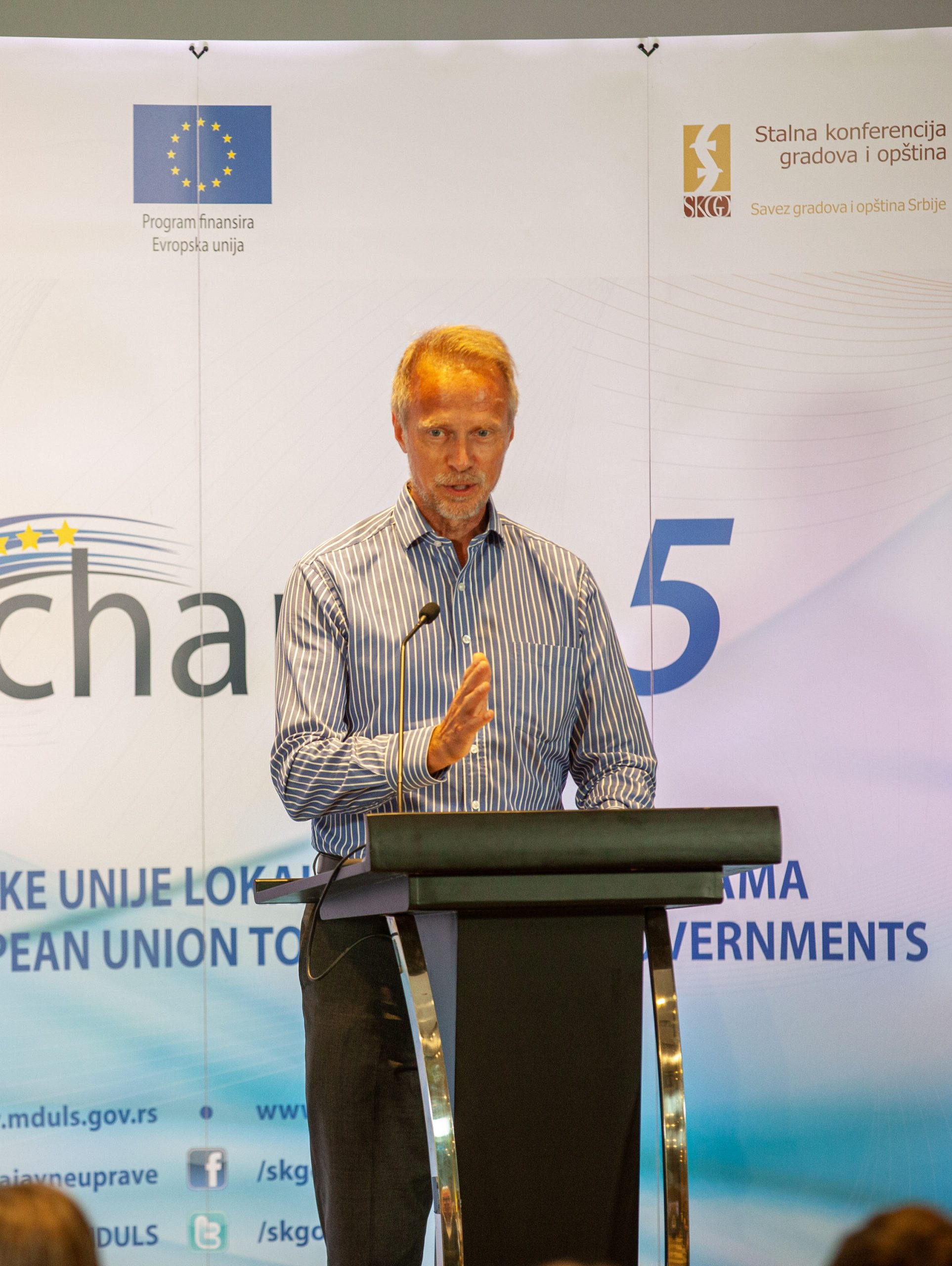
According to him, countries cannot develop and modernise unless the whole society participates in all of this and unless everyone experiences the benefits of that change.
“When we talk about the role of local self-governments in the process of Serbia’s accession to the EU, there is an EU regional policy that has the ambition to help provide equal opportunities and help those who are not sufficiently developed”; Engstrom said, emphasising the principle of subsidiarity as one of the main principles in the application of the acquis communautaire, and according to which the issues of development, society and so on are resolved on the most immediate level of government that is appropriate, which, in the majority of cases, is the local level as it is closest to the citizens and economy.
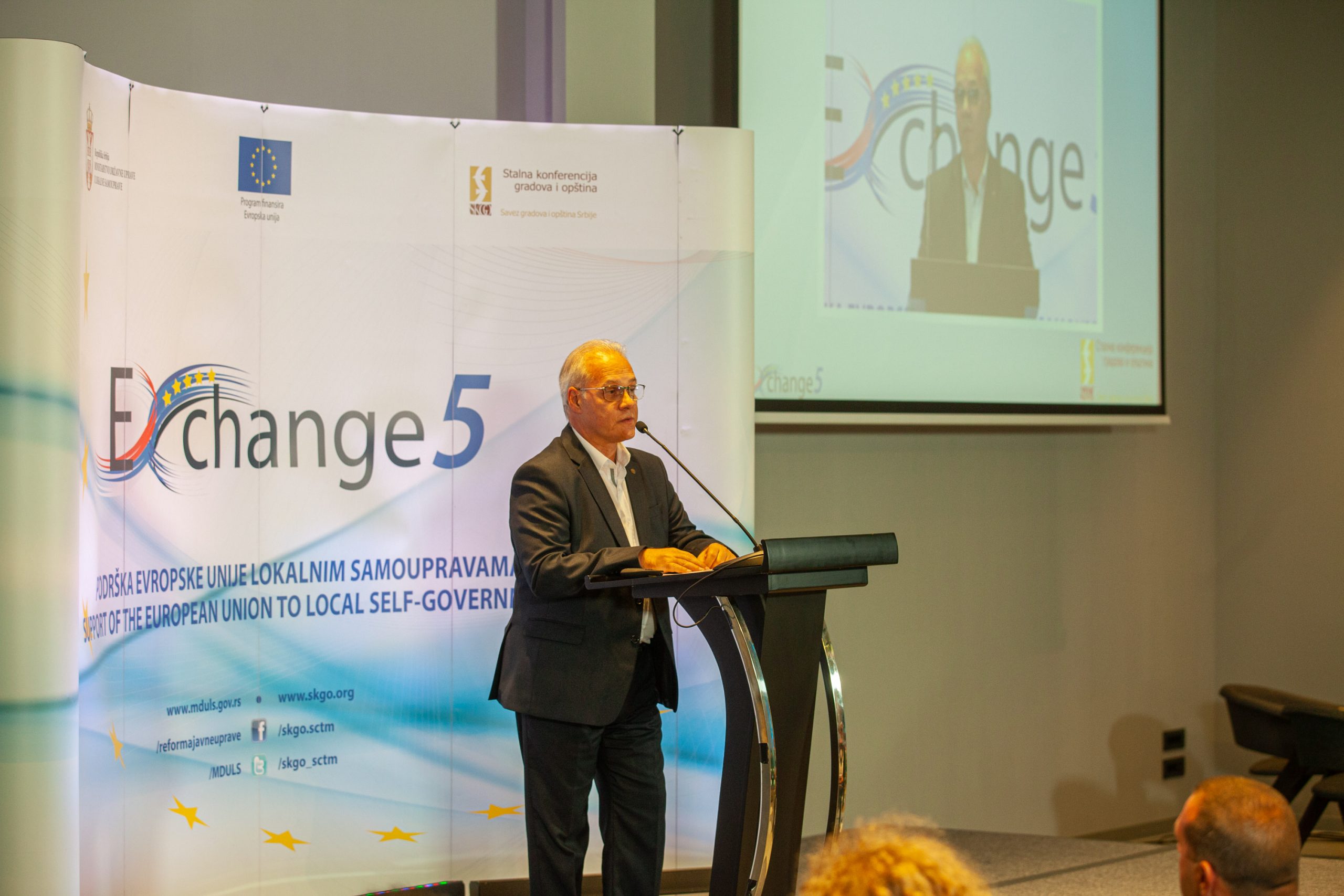
During his address in the introductory part of the meeting, Saša Mogić, Assistant to the Minister of Public Administration and Local Self-Government, pointed out that the Exchange 5 programme was implemented in the best way to strengthen administrative, organisational and technical capacities in local self-governments, as well as to improve employee competencies.
“A large part of the activities was aimed at defining how and in what way the cities and municipalities participating in the Programme can list their property through their projects, in the appropriate records and so on, which helped them plan activities, plan budgets, as well as to know where they can earn their income from”, Mogić explained.
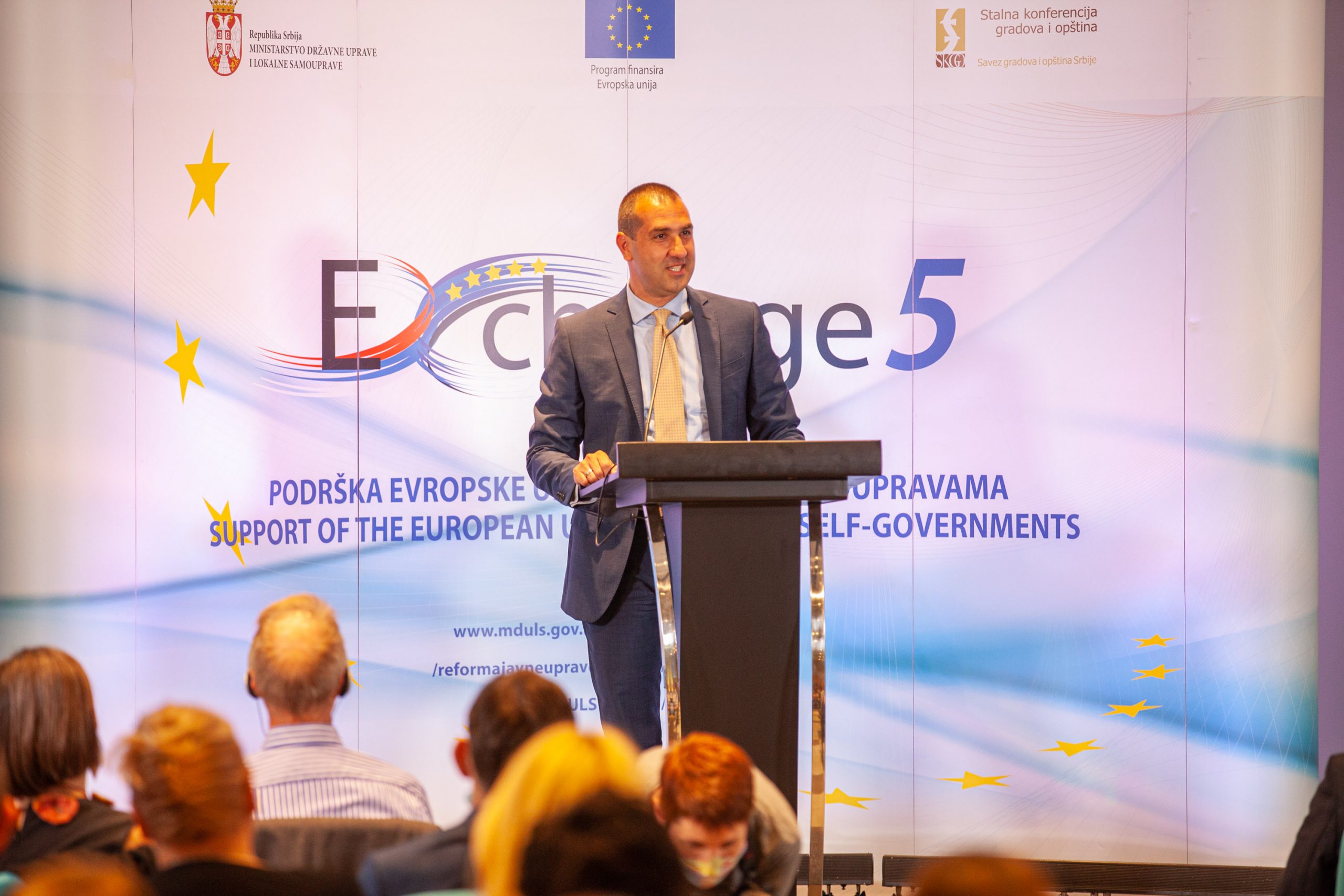
Dušan Čarkić, Assistant Minister for European Integration, stated that projects such as Exchange 5 are extremely important, primarily due to resolving property issues and strengthening local capacities in order to independently manage projects.
He emphasised the importance of such project actions and emphasised their contribution to faster accession to the European Union and improvement of the systems that function in our country.
“Our Ministry has undergone a reorganisation, so we have established a new sector that will deal with the Green Agenda and the goals of sustainable development, and the main focus is on the goals of sustainable development, i.e. on supporting local self-governments,” concluded Dušan Čarkić.
The Secretary General of the Standing Conference of Towns and Municipalities, Đorđe Staničić, stated that this programme has had continuity since 2004, and that the EU, through five phases of the Programme, has invested more than EUR 33 million in the development of local self-governments in Serbia.
“There is no local self-government in Serbia that in one way or another did not participate in any of the phases or components that we had. What we find especially important is to act in the system, and that we as an organization take care of how policies are conducted at the state level, what are the aspirations, strategic documents and what a particular ministry or government wants in this area”, Staničić explained.
At the final conference, there was a premiere of a film about the experiences of beneficiary local self-governments and improvements achieved in local communities thanks to the Programme. The ceremony ended with the awarding of letters of thanks to the cities and municipalities that were direct beneficiaries of the support.

